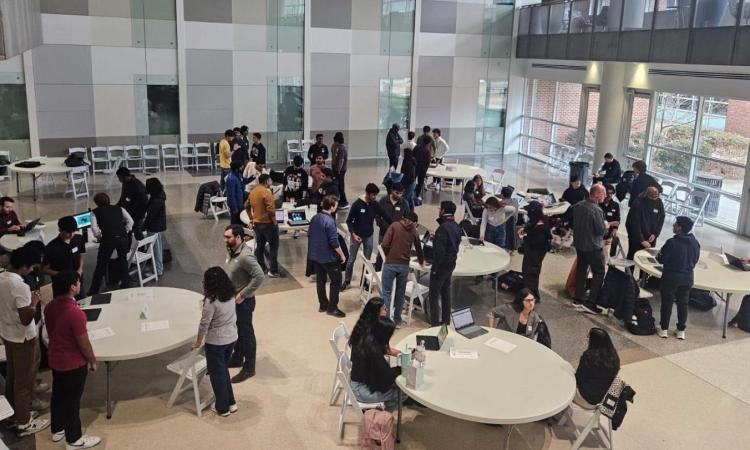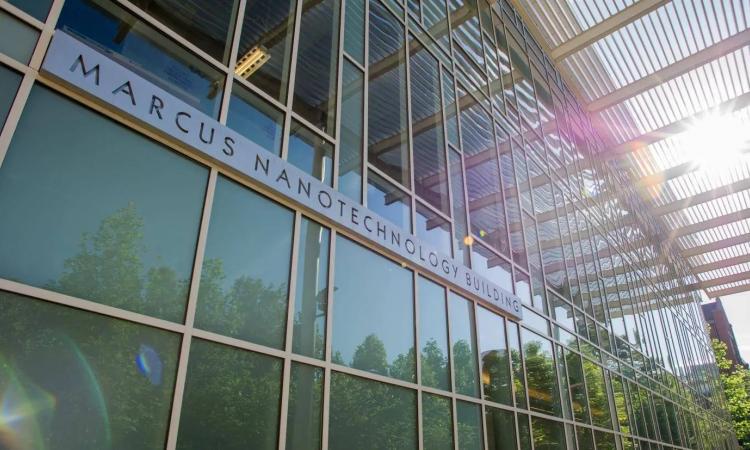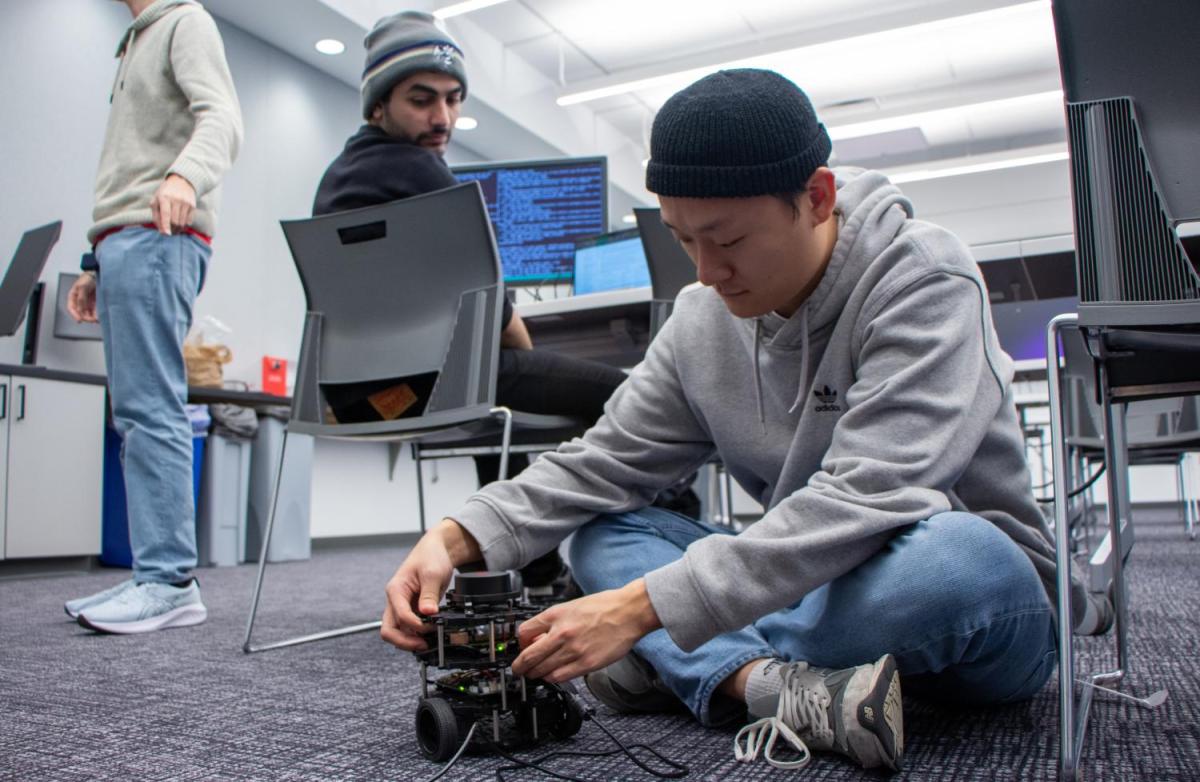
The clacking of keys and murmur of collaboration filled the room on the second floor of the CODA building as teams of Georgia Tech students and researchers hacked away at lines of code.
They were gathered there on January 30, 2025, the last day of the annual Georgia Tech Open Hackathon, an event designed to help researchers and developers accelerate and optimize computer code by utilizing a variety of data center architectures, including central processing units (CPUs) and graphic processing units (GPUs).
The 10 participating teams, selected from a pool of nearly 50 applicants, had each worked on benchmarking and improving their own unique code for projects that covered a variety of topics from robotic autonomy to biomedical sensor applications. Their work culminated on the last day of the hackathon when each team presented the progress they had made over the 11-day event.
While in its fourth year at Georgia Tech, the sights and sounds of the 2025 Open Hackathon were new. This year was the first time the event featured an in-person component.
The on-site addition aimed to foster a more collaborative environment and help break down some longstanding barriers in advanced computing. To further this goal, teams toured the data center that houses the supercomputing hub central to the whole event: the AI Makerspace.
“Research computing has long been seen as this secure resource that is not easily accessible,” said Aaron Jezghani, a research scientist with the Georgia Tech Partnership for Advanced Computing Environment (PACE), who helped organize the event. “The AI Makerspace challenges that traditional belief. Hosting the hackathon on the makerspace and having teams on campus to visit the infrastructure in person made it something tangible that they could better understand.”
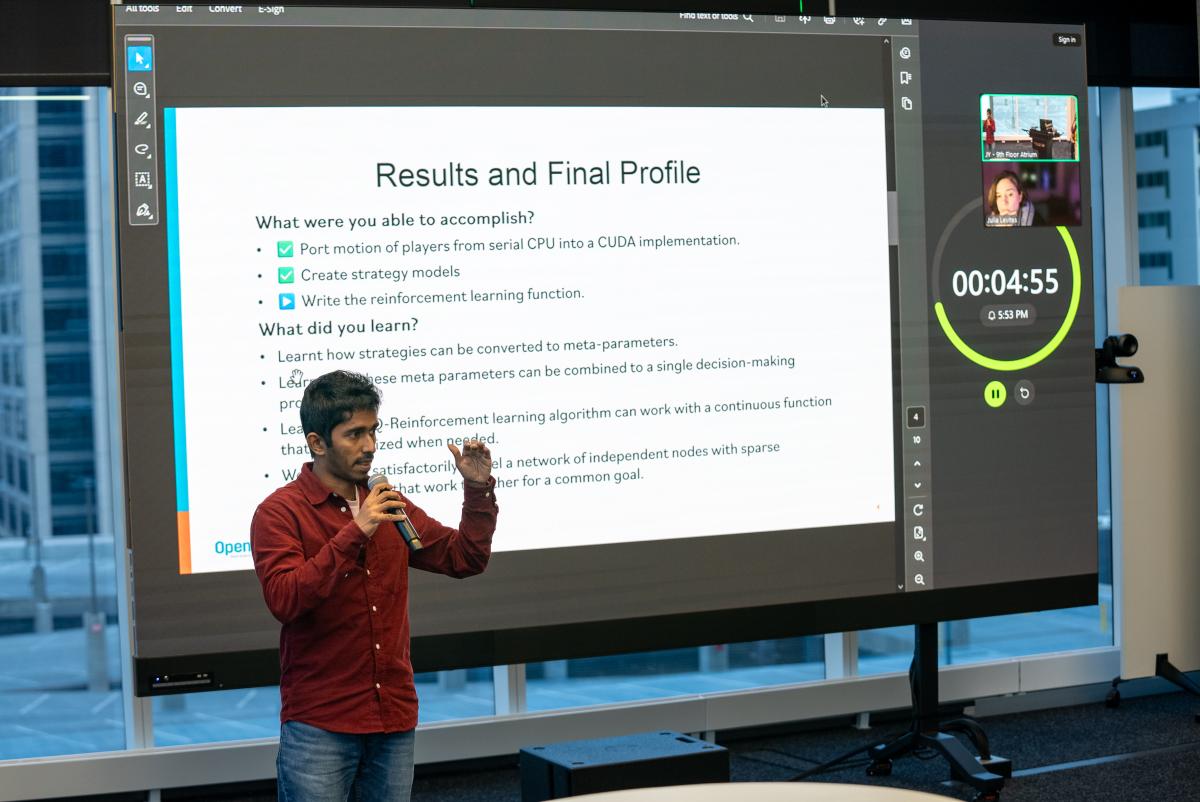
The AI Makerspace, launched in April 2024 in collaboration with NVIDIA and Penguin Solutions, is one of the first supercomputing clusters designed specifically for students in the country. This is the second year the OpenACC Hackathon has utilized AI Makerspace resources.
“NVIDIA has historically prioritized supporting developers and researchers, so it’s a natural motion for NVIDIA to participate in these community efforts because we can leverage our subject matter expertise to make a bigger impact in advancing science and innovation,” said Jack Wells, director of higher education and research at NVIDIA.
NVIDIA is one of the country’s largest suppliers of artificial intelligence (AI) hardware and software. The company is a founding member of the OpenACC Organization which manages a variety of events and provides educational resources to promote OpenACC, a standard that makes it easier for programmers to write code that runs efficiently on both CPUs and GPUs.
Unlike traditional hackathons, which typically focus on intense competition and rapid development, the Georgia Tech OpenACC Hackathon emphasizes fostering innovation and collaboration. By providing access to over 300 NVIDIA GPUs and 2,400 CPUs, the AI Makerspace allowed teams to conduct their largest and most ambitious tests and simulations at unprecedented speeds and scales.
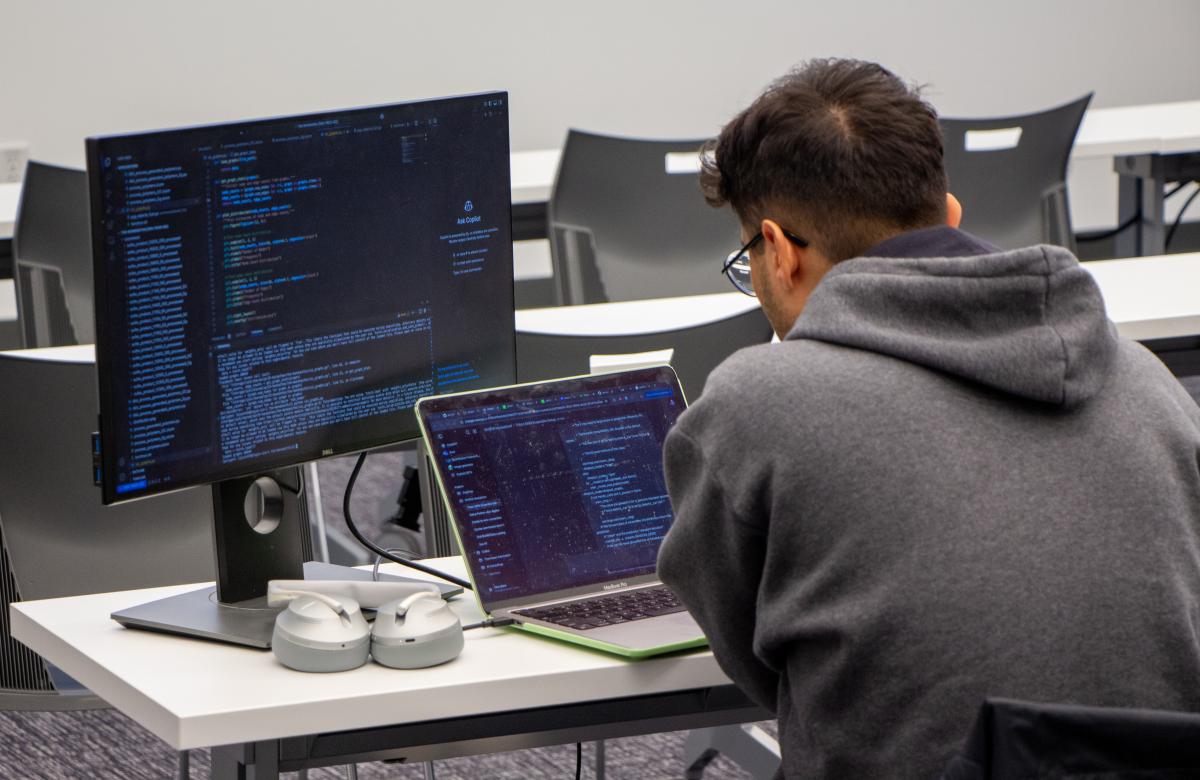
“Teams are able to complete work that normally would take two to three months, in only a couple of hours,” Jezghani said. “Participants are usually floored that they can actually use this resource without paying an arm and a leg.”
Georgia Tech School of Electrical and Computer Engineering (ECE) Assistant Professor Matthew Flavin, who’s neural mechatronics research combines mechanical engineering, electronics, and neural networks to create intelligent, adaptive systems, saw the Open Hackathon as an opportunity for his research group to learn about different compute methods and technologies.
With help from ECE Ph.D. student Dulani Wijayarathne, he entered his team’s project into the hackathon that uses haptic devices, which can create an experience of touch by applying forces, vibrations, or motions to the user. The devices are paired with smartphones to create a visual sensory substitution system for visually impaired people.
“It can be tempting to use the same tools I had used previously, but with a new lab I wanted to start from scratch and figure out the best things that were out there,” Flavin said, who joined the ECE faculty in fall 2024. “It was exciting to see the power of the AI Makerspace up close and learn about other sophisticated tools. The experience will be very useful for our research.”
In addition to utilizing the AI Makerspace, teams participating in the hackathon partnered with mentors from NVIDIA.
To some, like robotics Ph.D. student Heriberto Nievez-Vazquez, the chance to learn from some of NVIDIA’s top engineers was as big of a draw as access to the incredible computing power.
“Our team was very interested in having mentors from NVIDIA,” he said. “We thought it would be beneficial for us to get the perspective of those in the industry who are using these types of solutions and are actively applying to them to real-world problems.”
Nievez-Vazquez, along with his teammates Hyuk Bin Kwon, Adam Mazlout, and Jacob Blevins in Professor Jun Ueda’s Biorobotics and Human Modeling Lab, are working on a robotic research platform to solve 3D referring expression in unknown environments, allowing users to ask a robot questions about its surroundings and receive accurate answers.
“The moment we would need help, a mentor would tell us to ‘check out this module or take a look at this document,’” Nieves-Vazques said. “They could answer questions and help set things up because these were systems they used before. That was very valuable for us.”
As much as the Open Hackathon is a learning experience for the teams, it’s also helpful for Jezghani and the PACE team that oversees the AI Makerspace.
It allows them to educate users and develop training, allowing more people to use the resource safely and efficiently, according to Jezghani.
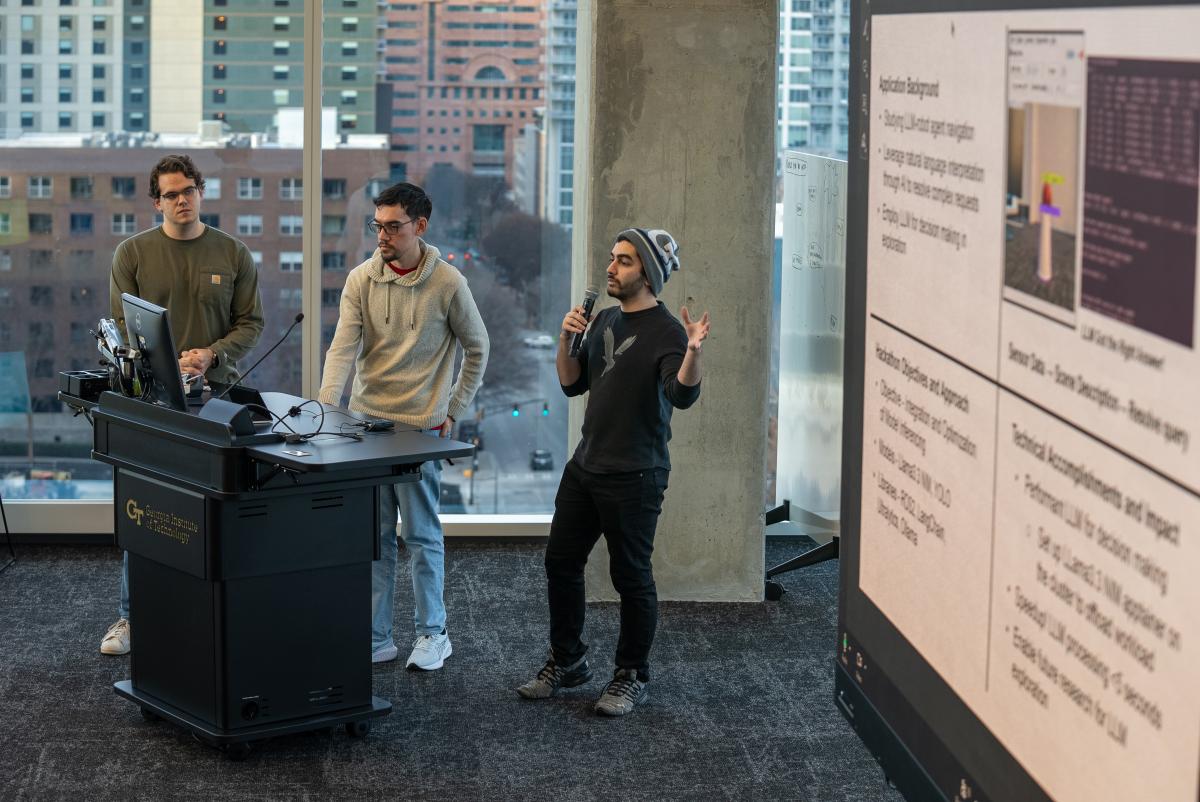
The diverse roster of projects also gives them a variety of new use cases to help them better understand how they can support future ideas that get brought to the Makerspace.
"There is going to be a significant increase in users at the AI Makerspace in the near future,” he said. “The hackathon helps us refine our policies, trainings, and documentation, enabling us to be better stewards and partners as the resource expands.”
(text and background only visible when logged in)
Related Content
From Ideas to Solutions: Georgia Tech's First Energy and Sustainability Hackathon
EnergyHack @GT, Georgia Tech’s inaugural student-run energy and sustainability hackathon, kicked off Jan. 17-19, 2025. Organized by the Energy Club at Georgia Tech, the mission of the hackathon was to unite passionate students to tackle critical challenges in the energy industry while fostering innovation and collaboration.
Georgia Tech Joins $840M DoD Project to Develop and Manufacture Next-gen Semiconductor Microsystems
Researchers will contribute extensive 3D heterogeneous integration expertise to the Texas Institute for Electronics-led initiative.
